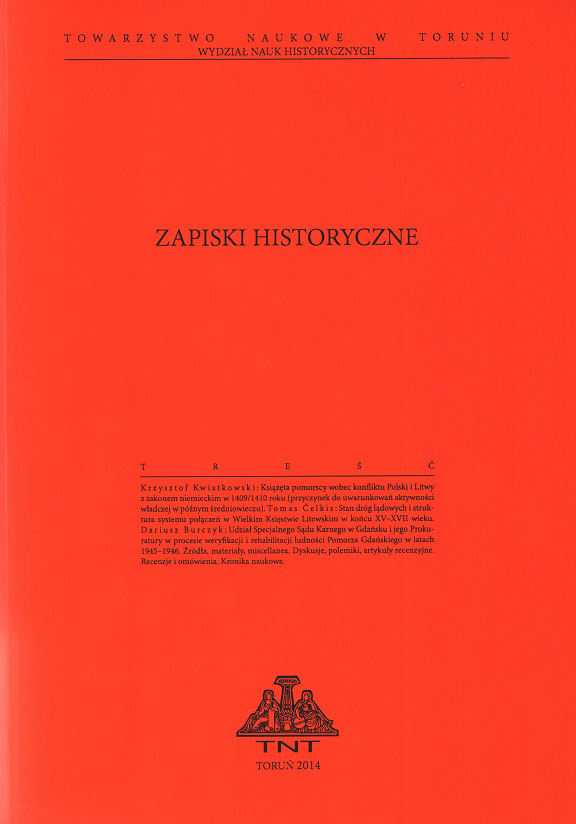Uwarunkowania ekonomicznego rozwoju miast prowincji pomorskiej w dwudziestoleciu międzywojennym
Conditions of the Economic Development of the Towns in the Pomeranian Province in the Interwar Period
Author(s): Edward WłodarczykSubject(s): Economic history, Social history, Interwar Period (1920 - 1939)
Published by: Towarzystwo Naukowe w Toruniu
Keywords: Pomeranian province;Pomeranian towns;urbanization;economic life;typology of towns;
Summary/Abstract: The article analyses the factors determining the development of the towns in the Pomeranian province in the years 1918–1939. The author maintained the typology of the towns from the period prior to WWI. The author also poses the question whether some of those towns changed the function they had played in the 19th century. The specific character of the development of Pomeranian towns in the period under discussion consisted in its new geopolitical and macroeconomic situation. After 1918 Western Pomerania became the frontier province. This situation determined the migration processes. The administrative authorities of the province indicated that it was also the reason for the economic stagnation. The author maintains that one may agree with the thesis about the migration processes being determined by the new political situation, but it should be rejected in reference to the economic development.The Pomeranian province after WWI found itself on the margin of Germany’s economic life, which concerned both average-sized towns and the capital of the province – Szczecin. After the power in Germany had been taken over by the NSDAP and the military preparations had started, only some Pomeranian towns got the impulse to develop. The area which mostly took advantage of the policy was the territory of the so called great Szczecin. The pace of the development of the remaining towns was slower than in the case of other German towns and cities.Some corrections should be introduced in the typology of Pomeranian towns for the discussed period. They concern mainly the weakening of the function of some ports such as Kołobrzeg and Greifswald. Some other towns started to play the role as communication centres important for the region – this group included Piła, which constituted a significant transport interchange of international importance, used mainly in the contacts with Poland. The deliberations included in the book indicate that economic changes in the towns of the Pomeranian province were very slow.
Journal: Zapiski Historyczne
- Issue Year: 83/2018
- Issue No: 1
- Page Range: 111-136
- Page Count: 26
- Language: Polish

